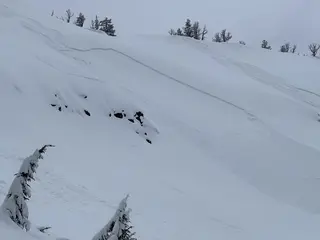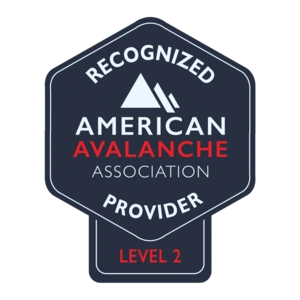AIARE 2 - Level 2 Avalanche Training
Advance your skill set from leveraging the certainty of a public forecast product to targeting uncertainty
Advance your skill set from leveraging the certainty of a public forecast product to targeting uncertainty

The AIARE 2 provides backcountry travelers an opportunity to advance their decision making skills in more complicated situations such as being a leader within a small travel group, traveling in more complicated terrain, and/or developing a travel plan where resources are scarce.
The AIARE 2 builds on the introductory avalanche hazard management model introduced in the AIARE 1 and adds to it the evaluation of critical hazard assessment factors. Students will describe and discuss weather, snowpack and avalanche processes, and identify how these processes relate to observations and travel within avalanche terrain.
We will be teaching two public AIARE 2 programs for the 2025-2026 season; one in February and one in March. We run our AIARE 2 program at a 4:1 ratio to provide an exceptional educational experience for what is most folks’ capstone course in their formal avalanche education.
Completion of AIARE 1 (or equivalent) and AIARE Avalanche Rescue (or equivalent) courses are required for enrollment in this program. We ask that you are able to ski/ride confidently at a black run level at the resort and have familiarity with your touring gear.
You will be given access to the AIARE online material in advance of your course and you must complete the education prior to your first field day. You will also be supplied with an AIARE Field Book, included in the cost of your course.
Additionally, this course will have short video call a few days ahead of time that will allow participants to get to know each other and their instructor, as well as to get some early practice in realistic trip planning and applying the AIARE Framework. We will limit this call to no more than one hour in length.

An important aspect to backcountry travel is practicing Leave No Trace. Following the 7 Principles will help preserve the natural environment for yourself and others. Be prepared to practice touring-specific LNT in the following ways and more:
You will learn more about these and other touring-specific LNT practices on your course, generally as add-on moments as we move through the backcountry.
Please see our Ski Touring Packing List page for a complete list of what you should bring on your course.
A sno-park pass is required to park at any sno-park located on the Mt. Hood National Forest. We will provide you with a sno-park pass for free, for the duration of the course, if you do not have one.
| Format | 2 days, 1 night | |
|---|---|---|
| Typical Capacity | 12 spots | |
| Upcoming Dates | ||
|
||